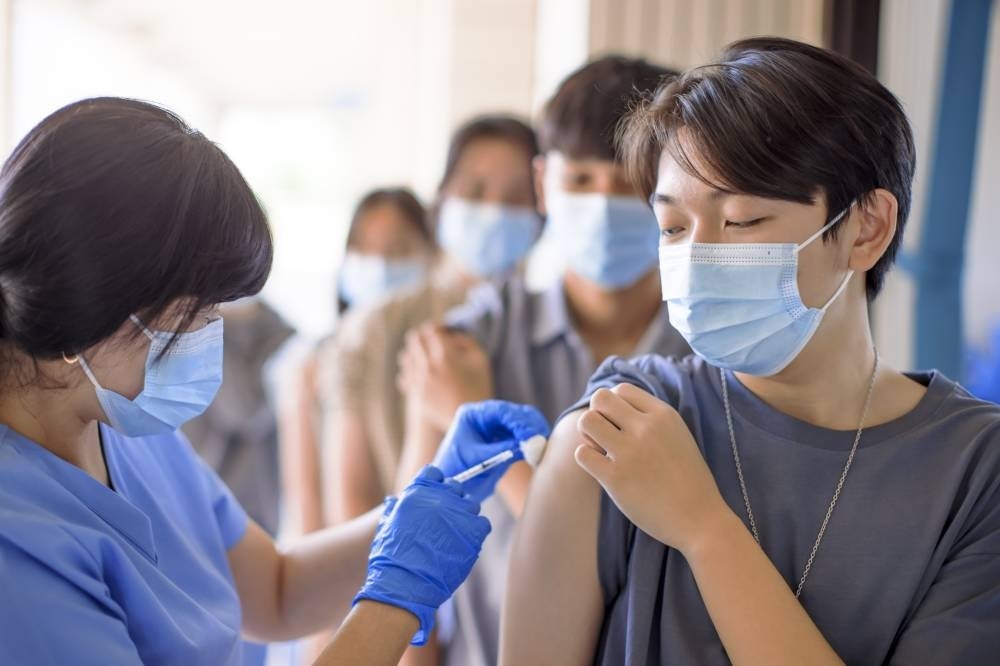Food handlers to get vaccinated against typhoid
A.Yaashini Anamalai
Typhoid caused by Salmonella Typhi, is a bacterial infection that can lead to high fever, diarrhoea, and vomiting.
It is transmitted through the ingestion of food or drinks contaminated by the faeces or urine of an infected person.
Typhoid can also be spread by using a bathroom contaminated by the bacteria and touching your mouth before washing your hands or by eating seafood from a contaminated water source.
Center for Disease Control and Prevention (CDC) has conducted surveillance for typhoid fever and about 350 confirmed cases were reported annually in the United States while in Malaysia, 507 typhoid fever cases were reported in Klang Valley from 2011 to 2015.
After the ingestion of contaminated food or drinks, Salmonella Typhi enter small intestine and bloodstream before invading the gallbladder, biliary system and the lymphatic tissue of the bowel.
The bacteria will then multiply vigorously and cause the symptoms of typhoid fever.
Typhoid commences with a low fever that gradually increases in temperature up to 41°C.
The incubation period is usually one to two weeks and the duration of illness can be up to four weeks.
Symptoms of typhoid fever include:
- sustained and prolonged fever
- slow heart rate
- diarrhoea, constipation and stomach ache
- weakness and lethargic
- poor appetite and weight loss
- dry cough
- sweating
- extremely swollen stomach
- flat-rose coloured rash
Timely and accurate treatment of typhoid fever is important to avoid hospitalisation, severe complication and death.
Without treatment, this infection can cause typhoid intestinal perforation (TIP), gastrointestinal bleeding, hepatitis and pneumonia.
TIP and gastrointestinal bleeding are life-threatening complications that can be fatal.
Certain individuals might not get any symptoms and become asymptomatic carriers.
Carriers can act as reservoirs for S. Typhi bacteria for months or years and can potentially spread the disease.
The typhoid vaccine helps to protect against typhoid fever and reduce the risk of infection. There are two types of typhoid vaccines available in Malaysia;
- Inactivated typhoid vaccine which is administered as an injection
- live typhoid vaccine which is administered orally
Injection vaccines can be given intramuscularly to adults and children two years old and above with the dose of 0.5 ml as a single dose or once every three years for people at risk.
On the other hand, the oral typhoid vaccine comes as an enteric-coated capsule that can be given to adults and children more than six-years old.
The recommended dose is one capsule every other day for 4 doses with a full glass of water on an empty stomach.
Booster dose can be taken every five years for high risk individuals.
It is noted that from August to October 2015, 71 typhoid cases in Malaysia were found among food handlers who were not vaccinated against the disease.
Numerous measures have been taken by the Malaysian government and the Ministry of Health Malaysia to prevent the spread of this infection and enforce regulations on food handling.
Food handlers are the front liners against typhoid. In addition to adequate training and medical check-up, food handlers are required to get typhoid vaccination.
This is in line with regulation 11 of Food Hygiene Regulations 2009 which mandates all food and beverage premises to comply with the vaccination requirement.
The authorities have the right to request vaccination certificates to ensure the food served at the premises is safe for consumers.
Other than food handlers, CDC also recommends vaccination for individuals travelling to places where typhoid fever is common.
Typhoid vaccine should be taken at least two weeks before traveling for typhoid vaccine injection or one week before traveling for oral typhoid vaccine.
Please inform the doctor or pharmacist if you had an allergic reaction after a previous dose of typhoid vaccine, has a weakened-immune system, is pregnant or breastfeeding or has taken any antibiotics or anti-malarial medication recently.
Some people may experience adverse event following immunisation (AEFI) such as redness or swelling at the site of injection, headache, abdominal pain, diarrhoea, nausea or vomiting.
Any side effects experienced may be reported to the National Pharmaceutical Regulatory Agency (NPRA) using ConSERF form available at www.NPRA.gov.my
Practice good hygiene habits by washing one’s hands frequently to contain the spread. While on-to-go, always carry hand sanitiser to be used when access to soap is limited.
Avoid drinking water that is not boiled or treated and choose hot foods or foods that are freshly made.
Typhoid is not to be taken lightly and it is the responsibility of everyone to keep it at bay.
Good hygiene practices and overall good sanitary habits will make a huge difference and impact, so let us do our part to stay safe and healthy.
For any queries regarding medicines, consumers can call National Pharmacy Call Centre (NPCC) at toll-free line 1800-88-6722 on weekdays from 8am to 5pm.
A.Yaashini Anamalai is a pharmacist at Hospital Putrajaya, Health Ministry.
Download Sinar Daily application.Click Here!














